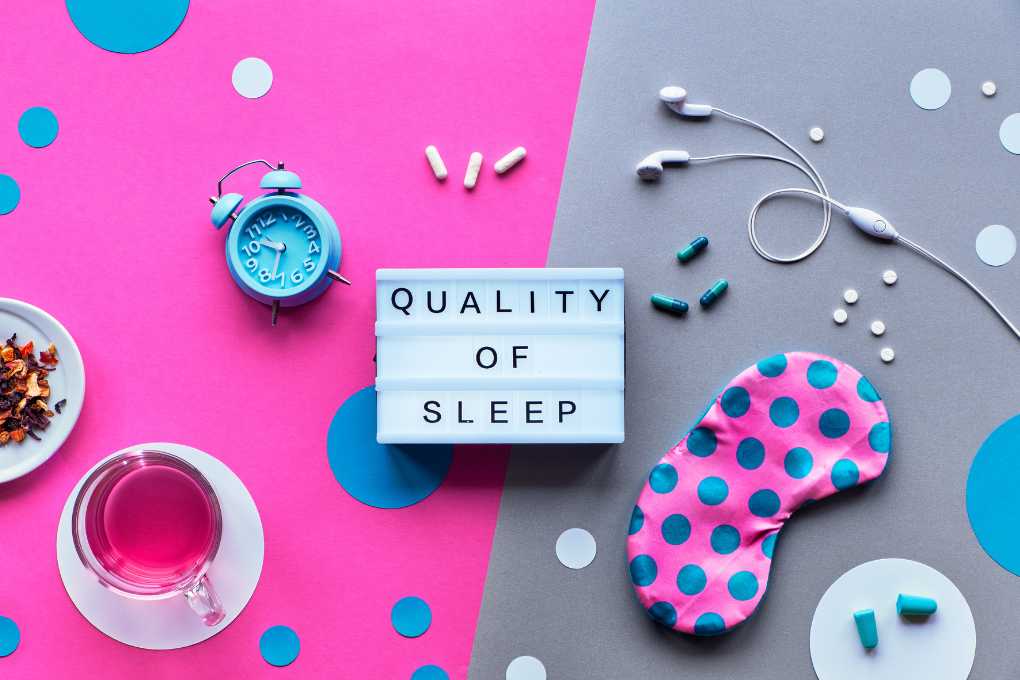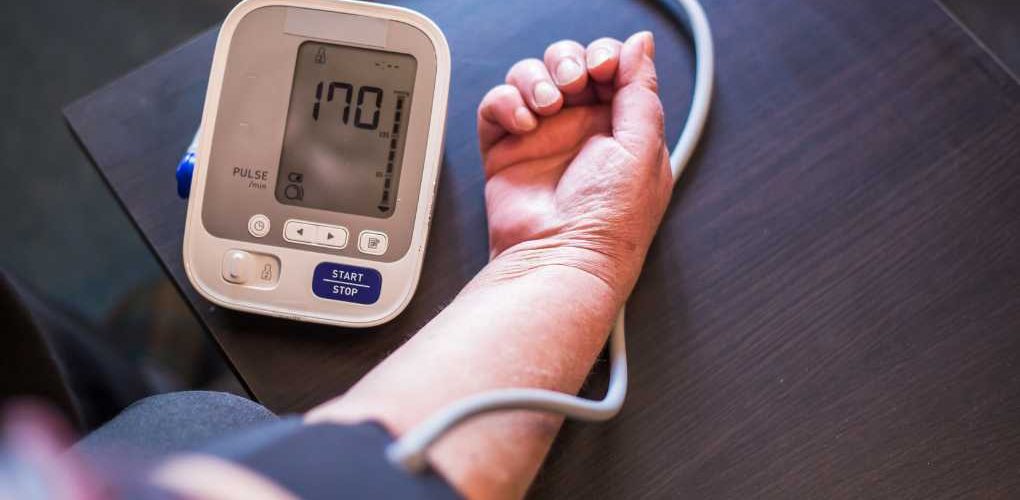Are you tossing and turning all night long, struggling to achieve restful slumber? If this describes you, you might be shocked to learn just how much poor sleep quality affects blood pressure levels. Indeed, those restless nights could be taking their toll on cardiovascular health! But worry not! In this blog post, we will explore this intriguing correlation between sleep and blood pressure, the importance of getting sufficient quality restful sleep, as well as some helpful strategies and tips on achieving blissful sleep!
Sleep can significantly lower blood pressure
Did you know that the quality of your sleep can directly affect your blood pressure? Research has shown a clear link between the two. When we don’t get enough restful sleep, our bodies produce stress hormones like cortisol, which can lead to constricted blood vessels and higher blood pressure levels.

Poor sleep can disrupt our natural body clock, which regulates various biological processes, including blood pressure. Without restorative sleep, this balance can be disturbed, potentially leading to long-term hypertension. One theory suggests that insufficient rest impairs our bodies’ ability to regulate stress responses, leading to increased inflammation and oxidative stress, ultimately raising blood pressure levels.
Studies have also found that people who regularly experience fragmented or inadequate sleep tend to have higher nighttime blood pressure readings compared to those who enjoy uninterrupted and restful sleep. Even if you get enough hours of sleep each night but still wake up feeling tired, it could have negative effects on your cardiovascular health. What can we do about it? In the next section, we’ll explore some practical strategies for improving sleep quality and developing habits to promote better blood pressure regulation. Stay tuned!
Importance of getting enough quality sleep
Sleep is key for overall health and well-being. While it may feel like an indulgence in our busy lives, prioritizing quality rest should become part of our daily routines. One key reason that sufficient quality sleep is so crucial is its impact on blood pressure. Studies have demonstrated that poor-quality rest can increase risk factors associated with high blood pressure and other cardiovascular ailments.

Sleep plays an essential role in our bodies’ rejuvenation process, including healing damaged tissues, consolidating memories, and regulating hormone levels. When these processes are disrupted due to a lack of quality restorative sleep, our bodies’ systems become imbalanced, resulting in higher blood pressure.
Lack of quality sleep also hurts our stress levels, with reduced amounts leading to an increase in cortisol production, resulting in higher blood pressure readings over time. By prioritizing quality restful sleep each night, we can manage stress more effectively while keeping blood pressure in check.
Factors that Influence Sleep Quality
Sleep quality can depend on numerous factors. One important one is your environment – this includes temperature, noise level, and lighting in your bedroom, which all play an integral role. Another crucial element is your daily lifestyle habits and sleeping schedule. An irregular sleep cycle, excessive caffeine or alcohol intake, and late-night screen time can all negatively impact sleep quality and make it harder for you to fall or stay asleep throughout the night.

Stress and anxiety also play an integral part in sleep quality, making it harder to relax and fall asleep without worry or tension in the mind. If your mind races when trying to go to bed, it is more challenging than normal to fall asleep peacefully. Also, physical discomfort like pain or an unsupportive mattress can impede our ability to restfully slumber, making a comfortable sleeping environment essential to proper restful relaxation in body and mind.
Certain medical conditions, like sleep apnea or restless leg syndrome, can significantly diminish sleep quality and require medical intervention for effective management. By identifying factors that compromise the quality of sleep for yourself, you can take steps towards improving them and enjoying more restful nights’ rest.
Tips for improving sleep quality
Establish a Consistent Bedtime Routine: Establishing a consistent bedtime routine can send signals to your body that it’s time for restful slumber. Try and go to bed and wake up at roughly the same time each night, even on weekends.
Establish a Relaxed Environment: Create the perfect sleeping environment by keeping your bedroom cool, dark, and quiet. Consider using earplugs or white noise machines if noise sensitivity is an issue for you.
Limit Screen Time Before Bed: Blue light from electronics such as smartphones, tablets, and laptops can disrupt the body’s natural sleep-wake cycle and may disrupt restful slumber. At least an hour before sleep time it is wise to avoid all forms of screen exposure such as smartphones, tablets, and laptops emitted by screens such as these devices.
Implement Stress-Reducing Techniques: Practice relaxation exercises like deep breathing or meditation before bed to ease tension and promote calm.
Make an Exercise commitment: Physical activity during the day can help enhance sleep quality at night, so aim for at least 30 minutes of moderate physical activity at least five days each week.
Pay Attention to Food and Beverages: Indulging in large meals or caffeine consumption before bedtime may hinder your ability to fall asleep quickly or remain asleep throughout the night.
Create an Ideal Sleep Environment: For an optimal sleeping experience, invest in a comfortable mattress and pillows that support proper posture while you slumber. If needed, blackout curtains or an eye mask may also help block out excess light.
Implement these tips gradually into your nightly routine for optimal results! Remember that improving sleep quality takes time and consistency!
Establish a Bedtime Routine
Creating a consistent bedtime routine is important for improving sleep quality and maintaining healthy blood pressure. By following a regular pattern at bedtime, your body will recognize when it’s time to wind down and prepare for rest. Here are some tips for establishing an effective bedtime ritual.

Try to stick to a regular sleep schedule by going to bed and waking up at the same time every day, including weekends, to regulate your body’s internal clock and improve the overall quality of rest. Creating a calming bedroom environment is also essential. Keep the room cool, dark, and quiet to optimize sleeping conditions. Consider using blackout curtains or earplugs if needed.
Engaging in relaxing activities before bed can enhance sleep quality. Reading, taking a warm bath, or practicing deep breathing or meditation techniques can reduce stress and promote relaxation. Limit exposure to electronic devices, like smartphones and tablets, before bed, as their blue light may disrupt the production of melatonin, the hormone that regulates sleep-wake cycles.
Avoid consuming coffee or large meals before bedtime, as they may disturb sleep patterns. Instead, opt for herbal tea or light snacks if necessary. Incorporate these strategies into your nightly routine over time, and you may notice improved sleep quality and more stable blood pressure readings during the day. Why not give it a try?
Diet and exercise play an essential role in encouraging good sleep hygiene.
Making changes to your lifestyle can help you sleep better. This includes eating a healthy diet with foods high in magnesium and potassium to regulate blood pressure and improve sleep. Physical activity can also improve your sleep patterns and reduce the risk of high blood pressure. Exercise releases endorphins that can improve your mood and help you relax, making it easier to fall asleep at night. However, doing intense exercise right before bed may have the opposite effect and make it harder to sleep.

By focusing on better nutrition and regular exercise, you can create an environment that promotes good sleep. Keep in mind that everyone’s journey to better sleep may be different, so don’t give up if you face challenges along the way.
It’s important to prioritize quality sleep to maintain healthy blood pressure levels and overall well-being. By understanding the connection between sleep and blood pressure regulation, identifying factors that affect the quality of sleep, and developing strategies such as bedtime routines and stress management, you can take control of your health and work towards improving it. When you follow your new bedtime routine tonight after eating healthily all day, know that you are setting yourself up for a peaceful and uninterrupted night’s sleep.






